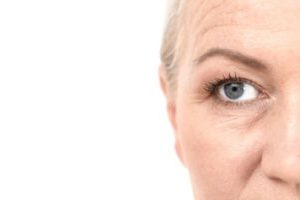 Sight Deterioration and Ageing
Sight Deterioration and Ageing
Most of us will experience a change in our vision as we get older. There are a number of conditions that are related to age, health and lifestyle, and genetics.
The NHS advises visiting your optician every 2 years so that changes such as cataracts or glaucoma can be picked up at an early stage and monitored. They emphasize that your eyes rarely hurt if there is something wrong with them and having regular eye tests, every 2 years, helps detect potentially harmful conditions early.
Common conditions that affect your vision with age
Age related macular degeneration (AMD)
Age-related macular degeneration (AMD) is the leading cause of loss of vision in people over 65 years of age. AMD is the degeneration of the macula, the area of the retina responsible for central vision. Risk factors for AMD include advancing age, family history of AMD and cardiovascular risk factors such as hypertension and cigarette smoking. There are two types of AMD, dry AMD & wet AMD.
Treating AMD - There is no treatment for dry AMD but clinical trials are in progress. Wet AMD accounts for 20% of diagnoses and its impact can be slowed with medication and early diagnosis.
Glaucoma
Glaucoma occurs when the optic nerve, which connects the eye to the brain, becomes damaged. The cause of this is usually a fluid buildup in the front of the eye, which increases the pressure inside the eye. Loss of vision can occur if Glaucoma is not diagnosed and treated early. Glaucoma is most common in adults in their 70s and 80s but can affect people of all ages.
Glaucoma will often be picked up during routine eye tests and often before any noticeable symptoms. Having regular eye tests can help you be diagnosed and receive treatment as early as possible.
Treating Glaucoma - This can include eyedrops, laser treatment and surgery. It is not possible to reverse vision loss but can prevent further loss.
Cataract
Our eyes contain transparent discs inside called the lens. The lens in your eye can develop cloudy patches which, if they become bigger, can cause blurry misty vision, and eventually blindness. As we age the lenses that are usually like clear glass when we are young become more frosted and start to limit vision.
Treating Cataracts - Cataracts tend to get worse over time and the only real solution is to have them treated surgically, removing and replacing the affected lens. This can be a daunting prospect, and it’s natural to worry, especially if is your ‘good’ eye. Cataract procedures have a high success rate and are usually performed on you as a day patient. Full recovery time can be from 2-6 weeks.
Download the Trust's factsheet on cataracts
Visit the NHS website to find out more about surgery to treat cataracts
Diabetic retinopathy
Diabetic retinopathy is a complication of diabetes, which is caused by high blood sugar levels damaging the back of the eye (retina). Blindness can occur if it is left undiagnosed and untreated.
It can take many years for diabetic retinopathy to reach a stage where it could threaten your sight.
The retina is the light-sensitive layer of cells at the back of the eye that converts light into electrical signals. The signals are sent to the brain and the brain turns them into the images you see. The retina has blood supplied to it through a network of capillaries. If blood sugar is persistently high the capillaries can become damaged and the ability to transmit the message from the retina to the brain diminishes.
Treating Diabetic retinopathy - Diabetic retinopathy usually only requires specific treatment when it reaches an advanced stage and there's a risk to your vision.
Further information on eye surgery


